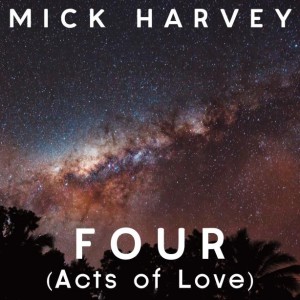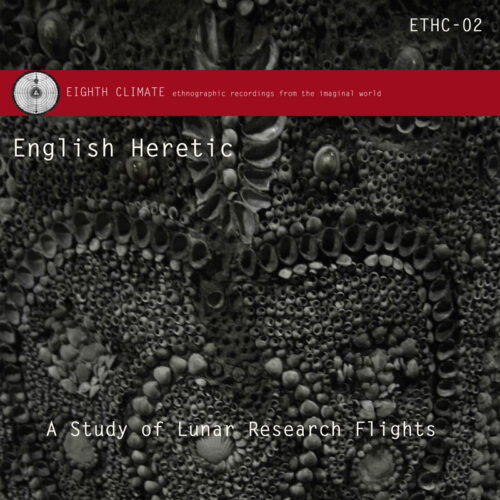The sixth solo album from former Birthday Party, Bad Seeds and Crime and the City Solution mainstay Harvey is an oceanic affair. The songs seem to appear and recede like tides, overlapping, flowing into one another. There are calms and there are swells, and these are most obviously represented by the album’s clearly stated three act structure. Act One, ‘Summertime in New York’, is a gathering of energies, the still surface ruffled by an ominous breeze; the unwanted, unasked-for sensation of falling in love. Harvey’s adaptation of the old hymn ‘Praise the Earth’ bookends the album, and the opening rendition celebrates the wonders of nature while simultaneously wrestling with an awareness of their transience- that even the sun and moon will one day expire, never mind our own petty, brief existence, with all of its obsessions and desires.
Given this abiding awareness, nothing is wasted on Four. With a discipline perhaps learnt from his extensive soundtrack work, Harvey has trimmed away the fat, so that every rhythmic or melodic touch serves a purpose. There are no indulgent solos, nothing beyond the very essence of the song. Harvey’s crow-black baritone soars and murmurs over chopped acoustic guitar and JP Shilo’s understated, atmospheric splashes of colour- on electric guitar and violin- and Rosie Westbrook’s hard-tacking double bass. A song by a former collaborator, PJ Harvey, is chosen for its craft and functionality, and nailed unfussily into place; ‘Midnight on the Ramparts’ conveys romance, loneliness, hope and melancholy with nothing more than a plaintive cowboy whistle.
Act Two, ‘The Story of Love’ is where the storm really blows up. ‘God Made The Hammer’ unfolds into an epic of pain and passion in a mere two minutes and forty seconds, before ‘I Wish That I Was Stone’ turns out to be a perhaps deliberate descendent of the late Rowland S Howards’ classic ‘Shivers’ – the finest moment of Harvey’s first band, the pre-Birthday Party Boys Next Door. Again, it crams eternities into just over one and a half minutes, thanks to a Spector-via-Springsteen guitar riff and repeated descending piano chords, before we’re dropped without a pause into a haunted, heartbreaking rendition of Van Morrison’s ‘The Way Young Lovers Do.’ If Van, when he first wrote and sang this song, was still a young man, then Harvey captures the pathos and yearning of a middle-aged affair, the love no less strong and devouring, even if body and spirit are battered and wary from too much experience. “That’s the Story of Love,” as the Saints song has it, and Harvey croons and growls through an impressive, stripped-back rendition, finally allowing the tension of the act some release as the trio rock out on the song’s final minute.
Act Three, ‘Wild Hearts Run Out of Time’, picks up where act one left off, with ‘Where There’s Smoke (After),’ the rhythm sounding just like a rowing boat bobbing on choppy waters after the storm has passed, lost at sea once again. It’s times like these a man turns to Roy Orbison, if not for comfort then at least for some empathy, and Harvey tackles the Big O’s ‘Wild Hearts’ as a lullaby for men who’ve long since forgotten how to sleep soundly.
“Love is just fairy dust, it’s shadowed by greed and lust” Harvey concludes, but “sooner or later, for better or worse, love is all there is.” And we’re back to the transience of existence, to dreams and dust, scattered on the endless sea. The ending recalls Shakespeare’s conclusion to his near post-modern final play, the Tempest, in which he bid farewell to the stage and, in a way, to the world: “our little life is rounded by a sleep” just as the island is rounded by the sea. The three act structure, of course, is a theatrical one; but what are we to make of this album’s title? That the fourth act of love takes place offstage, after the album has ended? The record ends with a question- where do our dreams, our lives and our actions go to after we are gone? The fourth act remains unknown; beyond the horizon, somewhere on the sea of endless possibilities.




